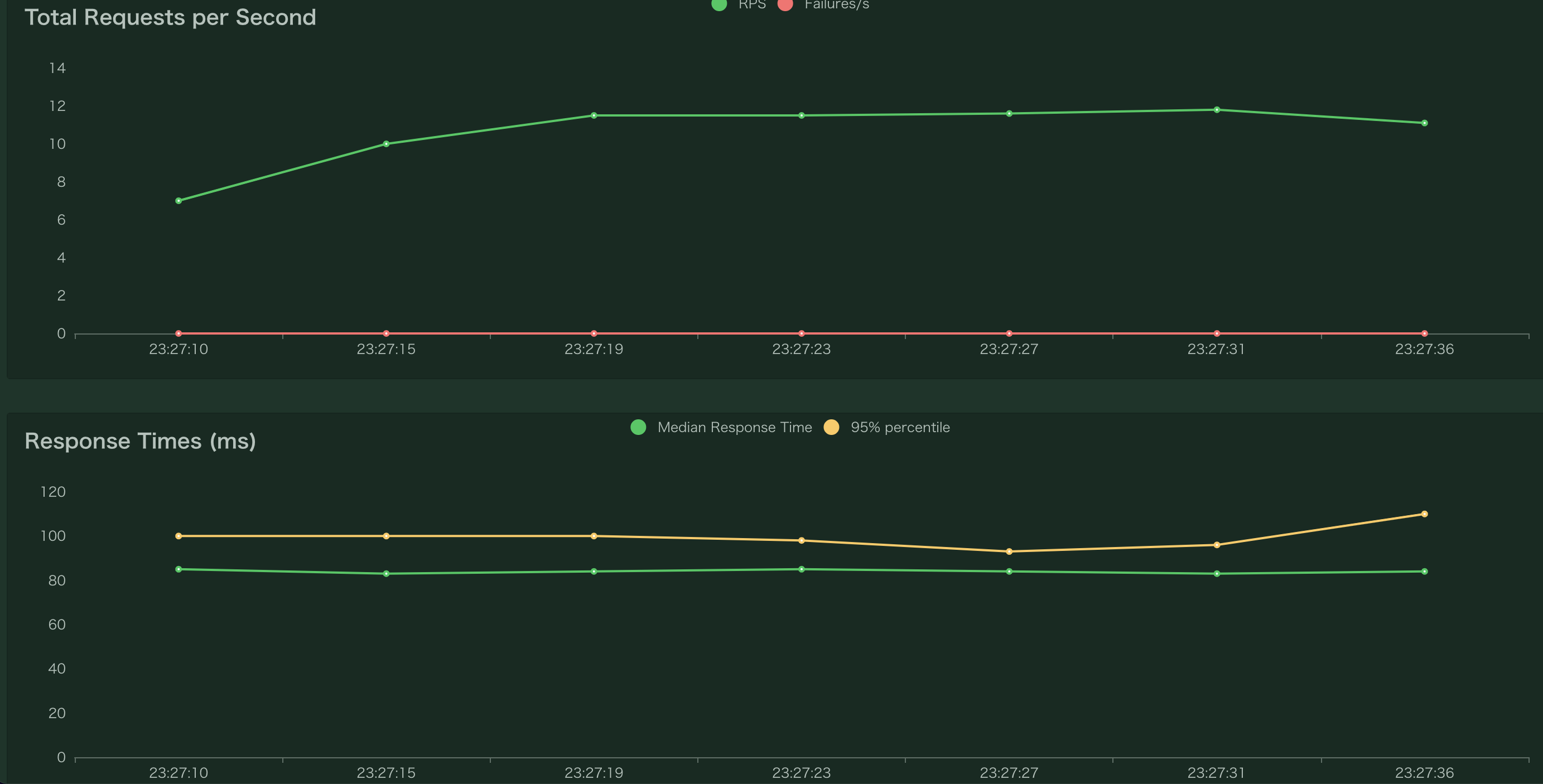概要
- データベースの負荷テストを行うのにLocustを使用しようと思ったが、意外にもWEBアプリケーションの負荷テストに用いる場合の記事しか無く、実装するのにまあまあ時間が掛かったので書き残しておく。
参考
環境構築
# Pythonのバージョンを確認
python --version
> Python 3.7.3
# psycopg2のインストール
> pip install psycopg2
# psycopg2のインストールが失敗する場合、以下を試す
> pip install psycopg2-binary
# locustのインストール
> pip install locust
準備
以下のようにPythonで書く。
import psycopg2
from locust import User, task, between, TaskSet, events
import time
def create_conn():
conn = psycopg2.connect(host="ホスト名", port=5432,
dbname="データベース名", user="ユーザー名",
password="パスワード", sslmode='disable',
keepalives=1,
keepalives_idle=30,
keepalives_interval=10,
keepalives_count=5)
if None != conn:
print("Connection successful")
return conn
def execute_query(query):
conn = create_conn()
cur = conn.cursor()
try:
cur.execute(query)
return cur.fetchall()
except Exception as e:
print(format(e))
class PostgresqlClient:
def __getattr__(self, name):
def wrapper(*args, **kwargs):
start_time = time.time()
try:
res = execute_query(*args, **kwargs)
print('Result ----------->' + str(res))
events.request_success.fire(request_type="postgresql",
name=name,
response_time=int((time.time() - start_time) * 1000),
response_length=len(res))
except Exception as e:
events.request_failure.fire(request_type="postgresql",
name=name,
response_time=int((time.time() - start_time) * 1000),
exception=e)
print('error {}'.format(e))
return wrapper
class CustomTaskSet(TaskSet):
@task(1)
def execute_query(self):
self.client.execute_query("select * from emp;")
class PostgresLocust(User):
min_wait = 0
max_wait = 0
tasks = [CustomTaskSet]
wait_time = between(min_wait, max_wait)
def __init__(self, *args, **kwargs):
super(PostgresLocust, self).__init__(*args, **kwargs)
self.client = PostgresqlClient()
テスト実行
> locust -f ./locustfile.py
web UIを使用しないで実行するときは(CSVの書き出しのみで事足りる時など)master.confにオプションを書いておくと便利。
locustfile = locustfile.py
headless = true
users = 100
run-time = 12h
csv
logfile = logs.log
> locust --config=master.conf
結果
Result ----------->[(1, 'aaa '), (2, 'bbb '), (3, 'ccc ')]
Connection successful
Result ----------->[(1, 'aaa '), (2, 'bbb '), (3, 'ccc ')]
Connection successful
Result ----------->[(1, 'aaa '), (2, 'bbb '), (3, 'ccc ')]
Connection successful
Result ----------->[(1, 'aaa '), (2, 'bbb '), (3, 'ccc ')]
Connection successful
Result ----------->[(1, 'aaa '), (2, 'bbb '), (3, 'ccc ')]
補足
テスト実施時に下記のようなOpen Files Limitについてのwarningが出た際には、Limitを上げる。
System open file limit '1024' is below minimum setting '10000'.
It's not high enough for load testing, and the OS didn't allow locust to increase it by itself.
> ulimit -Sn 10001
Maximum Number of Open Files Limitについて
Every User/HTTP connection from Locust opens a new file (technically a file descriptor). Many operating systems by default set a low limit for the maximum number of files that can be open at the same time.
Locust will try to adjust this automatically for you, but in a lot of cases your operating system will not allow it (in which case you will get a warning in the log). Instead you will have to do it manually
まとめ
上記のようにすることで、Postgresqlの負荷テストが実行できた。今回はPostgresqlで実施したが、データベース接続の部分を書き換えればMySQLの負荷テストも可能になると思う。

